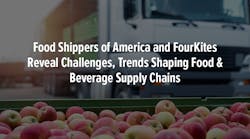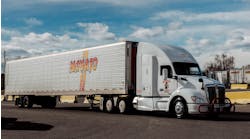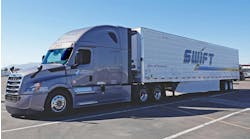Survey: Food shippers face labor, capacity, and supply chain challenges
The three biggest challenges facing the food shipping industry are labor and talent management (49%), transportation capacity issues (39%), and supply and demand planning disruptions (35%), according to a survey of industry leaders by FourKites and Food Shippers of America (FSA).
FourKites is a supply chain visibility firm. FSA is a non-profit organization that serves a community of supply chain, transportation, and logistics professionals.
They say the survey of more than 115 industry leaders sheds light on the most pressing issues in the food and beverage (F&B) community, as well as the impact of ongoing economic, geopolitical, and supply chain disruptions.
“Food and beverage shippers have contended with a lot lately, as the industry has been more affected by product and material shortages than most, and for goods that are in demand year-round,” said Glenn Koepke, FourKites general manager of network collaboration.
“Those who have navigated supply chain disruptions the most successfully are companies that have leaned heavily on technology and collaboration to identify and address issues before they snowball into major events.”
Size matters
Difficulty with supply and demand planning, product availability and warehousing were more likely to plague enterprise companies with sales of $500 million or more, according to survey results. While these were also top concerns for smaller food and beverage shippers with less than $500 million in sales, those companies were more likely than their larger peers to cite store operations and transportation rates as the primary challenges.
Underlying these issues, shippers indicated that COVID-19’s impact on labor (56%), over-the-road capacity constraints (44%), port delays and congestion (30%), and changes in consumer behavior or buying patterns (22%) have all disrupted operations and created or exacerbated today’s challenges. In fact, since the pandemic began, more than 30% of respondents have seen a drop in customer loyalty, while 55% have seen a sales decline or miss due to product shortages. The financial impact was more acute among enterprise companies, with more than 65% indicating losses.
Looking ahead, a significant majority of companies (75%) say they are “concerned” or “very concerned” that rising inflation and geopolitical uncertainty will negatively impact sales during the fourth quarter of 2022.
According to the latest FourKites data, the 28-day average F&B shipping volume is down 1% year-over-year, compared to a nearly 10% decline in shipments for all other industries. Meanwhile, the 28-day average percentage of F&B deliveries delayed has remained stable throughout the year, hovering around 27.5%.
Staying ahead
When asked how they will future-proof their supply chain, technology and automation was a common theme among respondents. “We are continuing to invest in technology to assist us with management of fuel, assets, and drivers’ utility,” indicated one survey participant.
“If we’ve learned anything over the past couple of years, it’s that disruption is going to be continuous, and we need to have visibility throughout our supply chain,” said Melissa Wreath, senior director of account management at ArrowStream, a foodservice supply chain technology that helps clients improve supply chain management efficiency, strategic sourcing programs, food safety, and food quality. “FourKites allows us to have a real-time understanding of where things are throughout the entirety of the network.
“Without it, you’re continuously playing catch-up.”




